A Night Drive on Highway 50
It’s me and the darkness. Out in the desert, I'm just trying to get to a motel room and some peace.
I came through Austin after dark, after the last soak of the day in the last hot spring that we visited. Austin is just over a tall mountain pass, then down a steep, curvy hill. The main street of this old mining town is not that long and it goes by fast. I should have stopped at my beloved Pony Canyon Motel, but I wanted to be farther along in the morning. Maybe I didn’t want it to be so quiet, even though I was just going to hit the sack. I passed by the Pony Canyon and dropped down into the open road of US 50 through the heart of the Great Basin Desert.
I always end up like this – driving some crazy stretch after a long day, trying to get to a motel room and some peace, wishing I were already there. This happens more out in the desert, where the towns are few and far between. Another long day and another long stretch of driving. Another last-minute decision to push on for another two hours.
I am in the space capsule, in the cockpit at night, desert driving, mountain range ahead, mountain range behind. It’s dark and I worry – a lifelong problem with me – about what’s out there, about deer, about stuff on the road that I might smash into. I flick on the hi-beams and the fogs. Dim the dashboard lights as much as possible and try to get rid of all ambient light.
Night driving. I turn off the phone and make sure the radio display is off. I try to kill all the little LEDs in the car, so that the whole road fills up my field of view. To concentrate, I lean forward so I don't get the headlights from behind in my eyes.
I’m at that point where, in the blackness of the night, everything is reduced to shapes, just the dashes on the road, the headlights of other cars, the lines. I can't see the background. I can't see any of the natural randomness. Everything is just rough manmade shapes.
And then it's a matter of who's coming from ahead or behind. Dim the hi-beams if somebody's coming the other way, but also welcome their presence because there's more light on the road. If somebody wants to pass, let them. Don't try to follow their red taillights if they're going too fast. That just defeats the purpose of being careful. There are times when I've locked onto people who are not going too fast, for whatever reason. Just to have company on the road, some extra light going in the same direction.
Catch the barest glow, a pale blue glow over the edge of the oncoming mountain range. That's the last bit of daylight somewhere over the Pacific at this moment. Thin sliver of a moon. A yellow moon. And behind me suddenly pops another pair of headlights a few miles back.
The moths. The onrushing moths and bugs. I pop on the big hi-beams and it's like the sun plowing forward and the moths just fly into it. The reflective markers on both sides of the road on poles and the all-knowing, all-important white lines telling you where to go.
Then come the games that you play with yourself while you count down the miles. It may be 70 miles to go, but it's really only 58 until I get to the last mountain pass that I need to climb, at which point I'll slow it down and just coast on down to the next town. The mental checkpoints. Austin Summit, Bob Spooner Summit, Westgate, Hickison Summit, Pancake Summit. I have been driving Highway 50 for many years now. At all different times of year. I'd better shut up now and drive.
I have turned off all the unnecessary tiny lights. I don’t even know how fast I’m going. I wonder where that guy is who was behind me? He might be behind the last ridge. There's more of a communion with other drivers on the road when it's dark out, when it's just lights. You're more aware of the other people. Just lights. There's something about the darkness that brings out a primitive awareness, the need for human companionship. And maybe, when all you can see are headlights, they become simply abstract creatures and vehicles and you can lay whatever vision on them that your mind comes up with.
Whether it's for a second as you pass or you are convoying together. It happens during the day when you're convoying, but it’s stronger at night. Stronger and more intense. You don't really see what kind of car the other person is driving. You just know there is another pair of headlights hanging out there in the distance while you’re rushing through the blackness. Going through the same thing. Another tiny cockpit with stuff going on inside of it, stuff that you could never imagine. Music, cigarettes, conversation. Maybe a bag of potato chips. Maybe drugs.
Night driving can be a drag. It's more stressful. I only do it on a regular basis on a trip like this in the winter, in the dark season, when it's unavoidable. Today may have been avoidable, but at this point it's not. So, I'm in that surreal state. I make sure all the mirrors and windows are scrubbed and clear, because that helps at night. My glasses as well.
The mind tries to take over. The dogs barking in my head. The imaginary sirens. The memories – good and bad – painful and sweet, the voices of the dead. They all try to intrude, but the road finally takes over. The ideal is to be in the moment, rubber tires rolling on the asphalt, the occasional bug hitting the window, sudden death, the wind howling outside whenever I crack the window. The strategic sip of water or maybe some Mountain Dew.
One night, years ago, I was fading and had 100 miles to go, so I reached back into the shopping bag behind my seat and found a bag of ground coffee. I opened that bag with the little metal closures and then tilted it to get a gob of grounds into my mouth. It was hideous and I chewed it for a long time, hoping to extract some caffeine, then I spat it out the window and it came back in my face and all over the door. I would eventually learn to carry some Excedrin, something with caffeine in it. But I also learned to stop making those insane runs. Thank God I stopped taking drugs and drinking years ago. I can only do a crazy run like this sober. Tonight, I’m not tired. I just have a ways to go and it’s dark.
On another road, you might have all the little twinkling lights. The lampposts on the overhead bridges and the overpasses. The bright lights. The reflection off the overhead signs. Here on Highway 50 in central Nevada, it’s me and the darkness. The occasional headlights in the opposite direction. Everything is magnified.
I enjoy driving. Most of the time, it’s a way for me to escape the bonds of place, time and self. A way to feel free, especially on a road trip. I don’t think I’d get that feeling on a trip to the supermarket, but I don’t normally drive to the supermarket, so I’m safe on that count. Hands on the wheel, pushing the accelerator pedal, eyes scanning the road, head in thought. In recent years, the relentless “notifications” from my phone, from the modern world, serve to remind me of how much I enjoy the daydream of actual driving. At night behind the wheel, I could be in deep space, apart from the world, traversing time and distance.
25 miles out of Fallon, there’s a family standing by their car on the side of the road. It’s not a rest stop, they’re just standing there, letting the kids pee and walking the dog with their taillights on, a tableau, a little tableau lit by red taillights.
Last night, in Utah, it was one of those nightmarish, surreal construction zones. There was road work and all these orange and white construction barrels with flashing yellow lights on them. They were putting up lane closures and lane changes. No flaggers, just blinking lights. Lanes made narrow with concrete dividers. That kind of scene is always a drag. It's like being in a video game. You really have to be alert. You have no choice. I could smell the hot asphalt. They were working on a small patch of road, but it went on forever. I opened my window and turned the radio on. I focused. But that was last night, and the construction crews and the other cars were almost a social distraction compared to now, with just me on the long, empty black road.
I’m lined up now on the final approach and should be able to find a motel within 20 minutes. First, I’ll pull into a gas station and top off for tomorrow, maybe buy something to eat before bed. I can’t see lights in the distance, but I know they are there. Soon, I will see them. A road is not wilderness, but this road is lonely, and it will feel as though I came in from the wilderness. Time to sit up a bit more in the seat, watch for the speed limit to go down and be on the lookout for rogue cops waiting to hand out a ticket. Time to stop daydreaming and start to think about motels. I know which one I’ll try first, the Motel 6 at the edge of town. Ever since they tore down my favorite motel, that’s where I head first.
It’s 20 miles to Fallon.
If you prefer to make a one-time donation, you can now contribute any amount to Juke using these Venmo and Paypal links.
Paul Vlachos is a writer, photographer and filmmaker. He was born in New York City, where he currently lives. He is the author of “The Space Age Now,” released in 2020, “Breaking Gravity,” in 2021, and the just-released “Exit Culture.”

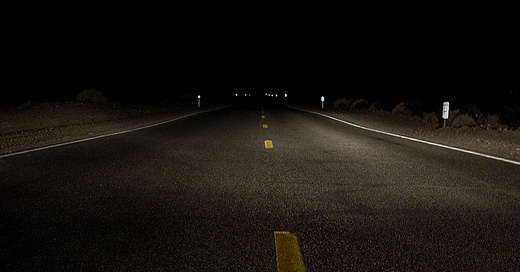


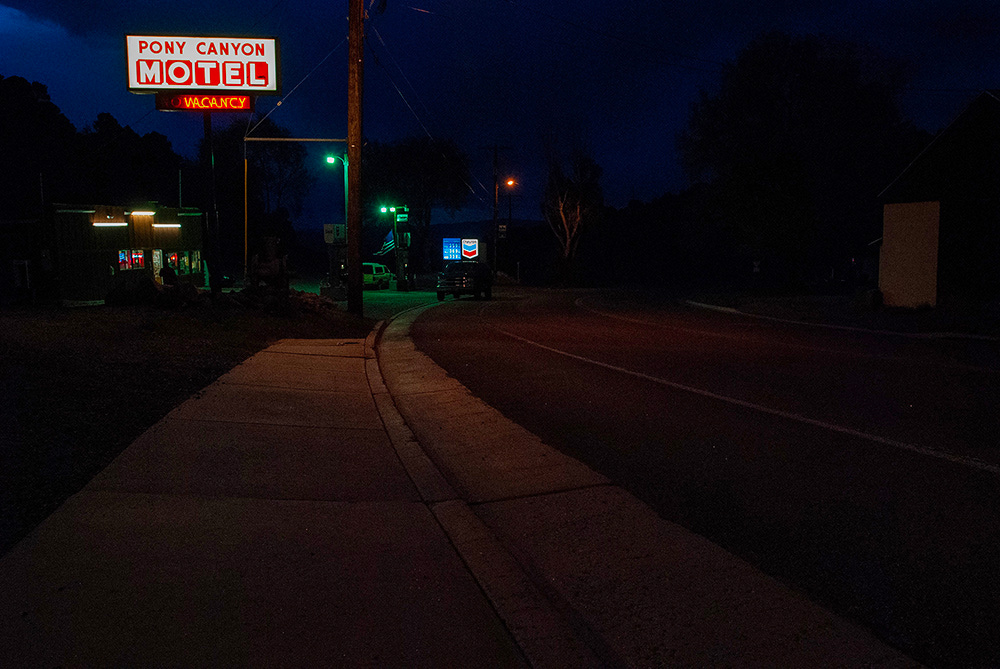
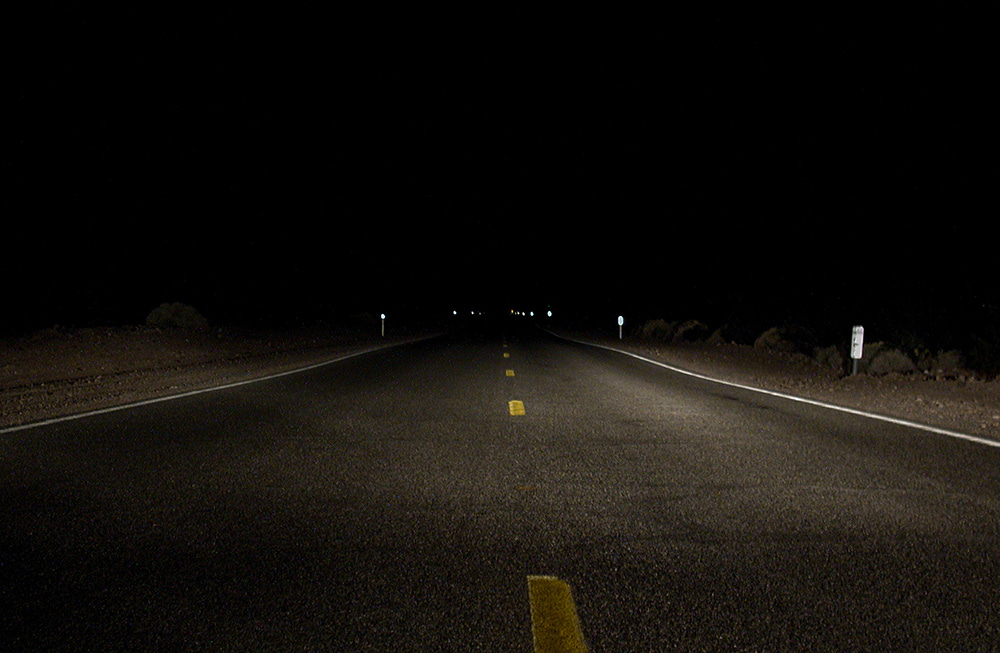
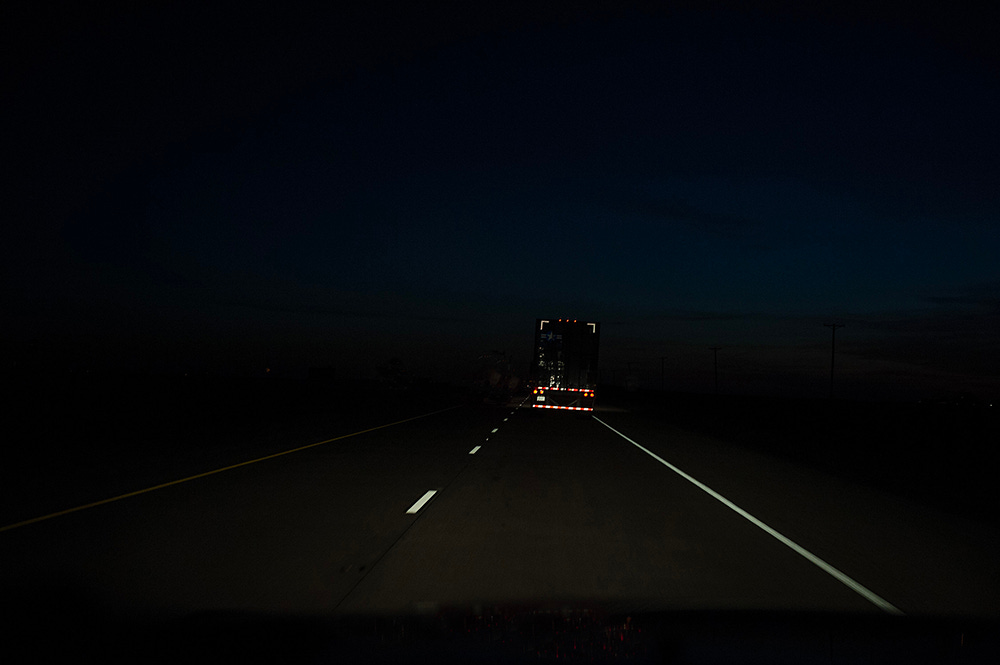
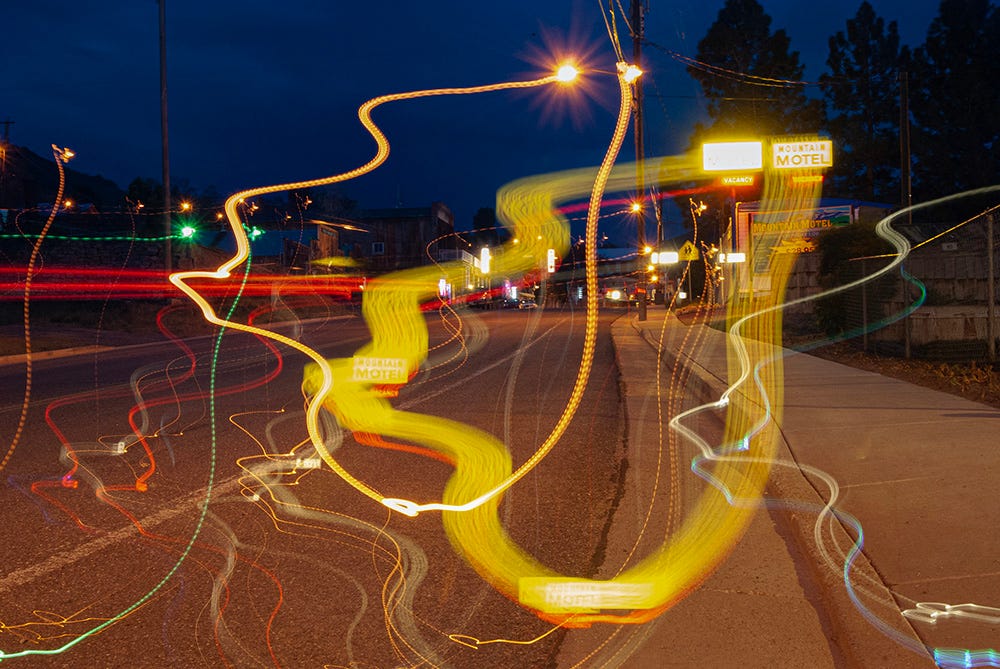

I could not stop thinking about Albert Brooks and Dan Aykroyd in the opening of the Twilight Zone movie. Brooks turns off the headlights...Aykroyd gets nervous... "There may be nuns ahead," jokes Brooks. We all know how it turns out. (Better than a Motel 6) ... You wanna see something really scary? Nice, evocative piece here.
wonderful. that motel 6 photo reminds me of an Edward Hopper painting.